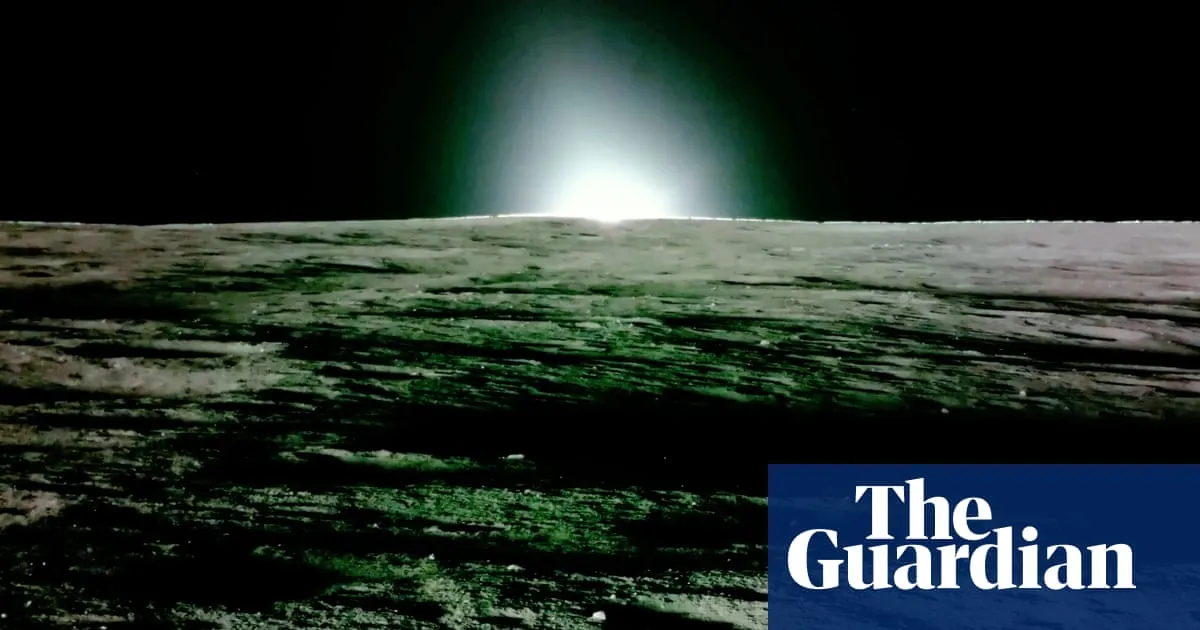
NASA has made a groundbreaking announcement with the release of the first high-definition images capturing a stunning sunset on the moon. These remarkable photographs were taken by the private lander Blue Ghost during a recent mission that may provide scientists with valuable insights into the enigmatic phenomenon known as lunar horizon glow. The images were showcased at a press conference held on Tuesday at Houston’s Johnson Space Center, marking the successful conclusion of a 14-day mission in collaboration with Texas-based Firefly Aerospace.
The commercial lander, Blue Ghost, successfully touched down on March 2 near Mons Latreille, a volcanic formation located in the Mare Crisium region on the moon’s northeastern side. This mission is part of NASA's ambitious $2.6 billion investment in commercial payload operators, aimed at reducing costs and supporting the Artemis program, which is set to return humans to the moon by 2027.
The two breathtaking images showcase the glow spreading along the moon's horizon as the sun appears to be halfway set, with both Earth and Venus also visible in the frames. Joel Kearns, NASA’s deputy associate administrator for exploration and the science mission directorate, remarked, “These are the first high-definition images taken of the sun going down and then going into darkness at the horizon. The images themselves are beautiful, they’re really aesthetic, but I know there are a bunch of folks looking at them now that study the moon.”
The phenomenon of lunar horizon glow was initially documented by astronaut Eugene Cernan during the Apollo 17 mission in 1972, making it a topic of significant interest for lunar scientists. Subsequent studies have suggested that this glow may result from tiny dust particles suspended in the moon's tenuous atmosphere, which illuminate during dawn and dusk. Some theories even propose that these particles may levitate, adding to the mystery of this lunar phenomenon.
In addition to capturing the mesmerizing images of the moon's sunset, Blue Ghost also recorded high-definition footage of a total eclipse on March 14, when Earth obscured the sun from the moon’s horizon. The lander, roughly the size of a hippopotamus, was launched on January 15 using a SpaceX Falcon rocket for a 2.8-mile journey. Blue Ghost was equipped with a variety of scientific experiments, including a lunar soil analyzer, a radiation-tolerant computer, and an experiment aimed at assessing the feasibility of utilizing existing global satellite navigation systems for lunar navigation.
Jason Kim, CEO of Firefly Aerospace, expressed pride in the mission's success, stating, “Firefly Aerospace is extremely proud to have accomplished this first fully successful commercial moon landing. I truly believe Firefly and Blue Ghost’s historic mission will be a new chapter in textbooks and become a beacon of what humanity can achieve.” This mission not only represents a significant milestone in commercial space exploration but also paves the way for future lunar expeditions.